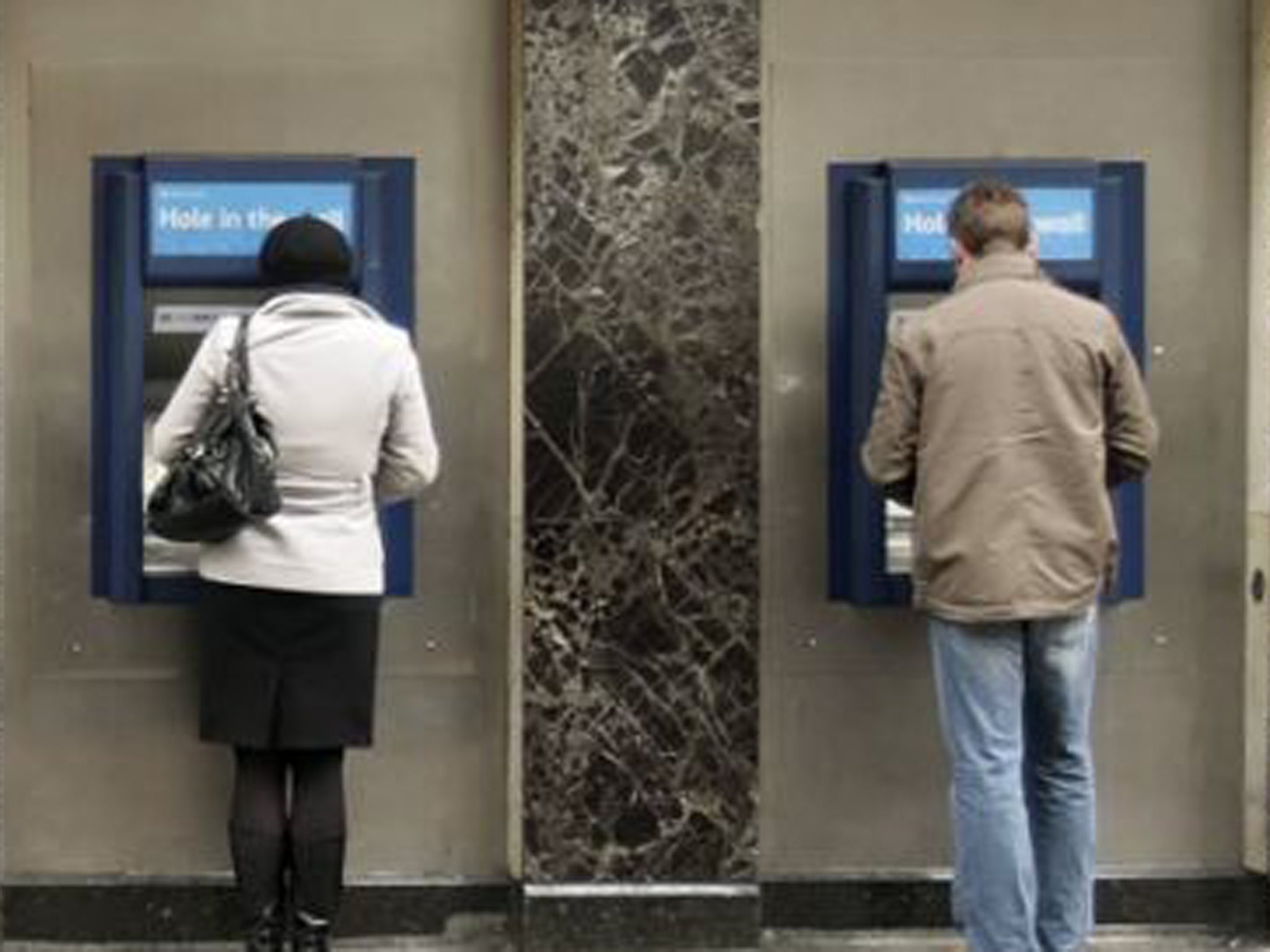Savvy Money: You can be held to account if a joint bank deal backfires
If your partner takes more than their share of the cash there is little you can do about it

How would you feel if you opened your bank statement and found someone else had applied for an overdraft without your permission and spent thousands of pounds without your knowledge? Not only that, but you were responsible for the entire debt? You'd probably be pretty unhappy about it. But I'm not talking about identity fraud; I'm talking about what can happen if you have a joint bank account.
When problems arise…
In fact, that's precisely what did happen to Jo R, from London, who has a joint bank account with her husband. They're in the process of getting divorced and he'd asked Jo to keep the joint account open while they finalised the finances. What Jo didn't realise was that her husband had applied for a £10,000 overdraft facility (yikes!) and, after their marriage broke down, had taken £2,700 out of the account.
Branch issues
You might expect the bank to spring into action in a situation like this, but when Jo got in touch she found the opposite. Staff at her local Halifax branch told her there was nothing the bank could do. A month later, when he'd spent almost £1,000 more, Jo went back to her bank. Again she was told there was nothing it could do.
Late response
In desperation, and after talking to counter staff, Jo withdrew £5,000 so her husband couldn't run up a bigger overdraft. It wasn't until two months later, after Jo complained to the bank, that it froze the joint account.
Halifax bank has offered Jo £150 in compensation and waived all overdraft charges, although it's since written to her asking her to repay the full amount (it's told me it's also written to Jo's husband for payment, although it's not told Jo this). It's admitted that branch staff could and should have done more, but describes what happened as an isolated incident, saying all staff are fully trained to ensure they "follow our procedures correctly and sensitively".
Joint account confusion
Banks don't keep figures on how many people have joint accounts, but over 21 million people in the UK are married and millions live with their partner so I'm sure the number runs to millions. The problem is that many people don't understand exactly how they work (research for my site showed 60 per cent of adults didn't) and the banks don't always help.
Joint accounts are a bit of an odd concept in law, in that you are "jointly and severally" liable for any debts. What that means is if one of you runs up a colossal debt and can't or won't pay, the other is responsible for the full whack. And sadly, Jo's experience isn't a one-off.
Clear information
The rules on joint accounts aren't always made clear when you sign up. Most high street banks include information about who pays off any debts in the terms and conditions which, in some cases, can be over 40 pages long.
One or two (Co-operative bank and HSBC), ask couples sign a separate agreement if they open a joint account and Nationwide staff mention it in their script if you apply via a branch or phone.
Get a free fractional share worth up to £100.
Capital at risk.
Terms and conditions apply.
ADVERTISEMENT
Get a free fractional share worth up to £100.
Capital at risk.
Terms and conditions apply.
ADVERTISEMENT
Changes needed
So, what needs to change? In my opinion, three things: firstly, banks need to make the rules around joint accounts much clearer when you sign up. That means giving couples a clearly written and short document that they have to sign.
Secondly, banks need to help customers who have a joint account if their relationship with the other account holder(s) breaks down. Either by offering to change the way the account works so both have to agree to future transactions or even by freezing it. Sure, customers have a responsibility. But banks should do their bit as well.
Lastly, banks should make sure both joint account holders agree to any increase in overdraft limits or mortgage extension. If they're equally liable to pay the whole debt, they should be kept informed about exactly what they're liable for.
Verdict
Joint accounts can be convenient but they can be bad for your wealth if things go wrong. They only work if the other account holder can be trusted and, sadly, you can't assume the bank will know what it's supposed to do if there's a problem.
Join our commenting forum
Join thought-provoking conversations, follow other Independent readers and see their replies
Comments
Bookmark popover
Removed from bookmarks